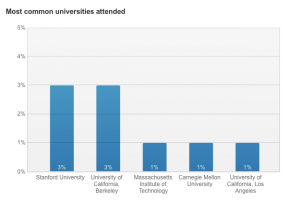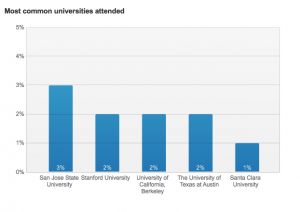And Here’s The Secret Reason Apple Is Crushing Google…
Published by Business Insider March 25, 2012.
It’s no secret that Google’s products often fail to win the hearts and minds of mass-market consumers the way Apple’s do.
Importantly, this failure generally has nothing to do with the technology that powers Google’s products, which is often amazing.
Rather, it’s the result of weaker product design.
Google TV, for example, was an absurdly complex flop that was apparently designed for consumers who have been dying to buy a TV that is as complicated as a computer (all four of them).
Google’s email system, Gmail, for years forced consumers to use a “conversations” format that geeks raved about but that confused normal people who liked good old email.
Google’s Android operating system, meanwhile, despite having many technological advantages over Apple’s iOS, is still harder and more complicated to use that Apple’s offering.
The common thread of these anecdotes is that Google designs its products for geeky technologists, while Apple designs for normal humans.
And it turns out that geeky technologists are a small, weird niche of the broader consumer market, which is making it harder for Google to become a beloved mass-market brand.
The difference between Google’s product design and Apple’s product design starts with the difference between the types of people each company places the highest value on.
Google has an engineering culture, in which brilliant technologists are the rock stars.
Apple, meanwhile, has a product-design and marketing culture, in which “technology” merely serves to support a product’s function and form.
More specifically, Google, which is led by founders and executives who posted amazing grades at the country’s top universities, is legendary for hiring only the smartest people it can find–with Google’s definition of “smart” being based on the applicant’s GPA at a top university and the applicant’s ability to handle interview questions that would flummox the vast majority of human beings.
Apple, meanwhile, was founded and built by a college drop-out who credited LSD and calligraphy with inspiring more of his product-design genius than anything he ever learned in school.
Like most people who work at Google, Steve Jobs was brilliant, but he likely never would have been able to get hired at Google. The Google hiring algorithm would have taken one look at his flaky educational background and concluded that he would never have amounted to anything.
Steve Jobs’s genius, in other words, was a sort of genius that Google places little or no value on.
But if Google is to become a beloved mass-market brand, it’s also the sort of genius that Google needs a lot more of. And the place to find that genius is probably not the country’s most prestigious computer engineering programs.
BI’s Matt Lynley recently posted a series of charts from LinkedIn that show the different emphases Google and Apple use when making their hiring and staffing decisions.
Both Apple and Google have their pick of students from any universities in the country.
And nowhere is the difference between the two companies more visible than in the schools they choose to recruit from.
Google, not surprisingly, hires mainly people who attended the country’s top engineering universities, like Stanford and MIT.
Apple, meanwhile, has its share of Stanford folks, but its primary source of talent is San Jose State.
I’m going to guess that Google does not employ all that many people who went to San Jose State. And I’m going to further guess that Google does not employ them because Google does not consider them smart enough or accomplished enough to work at Google.
But it seems safe to say that most mass-market consumers–the folks Google hopes will one day love its products as much as they love Apple products–are less like people who went to MIT (Googlers) than they are like people who went to San Jose State.
So I’m going to suggest, respectfully, that if Google wants to design products that are as beloved by normal people as Apple’s products are, it might want to hire a college dropout or two. Or at least a few more folks who went to universities like San Jose State.


